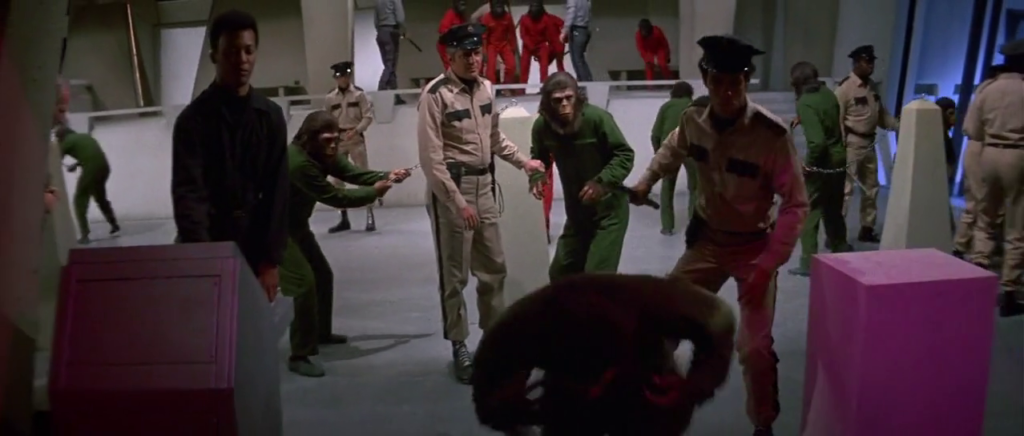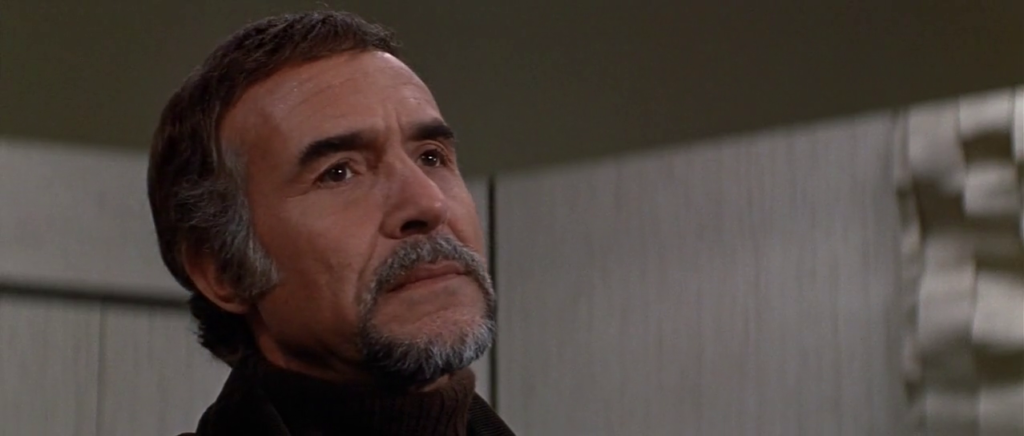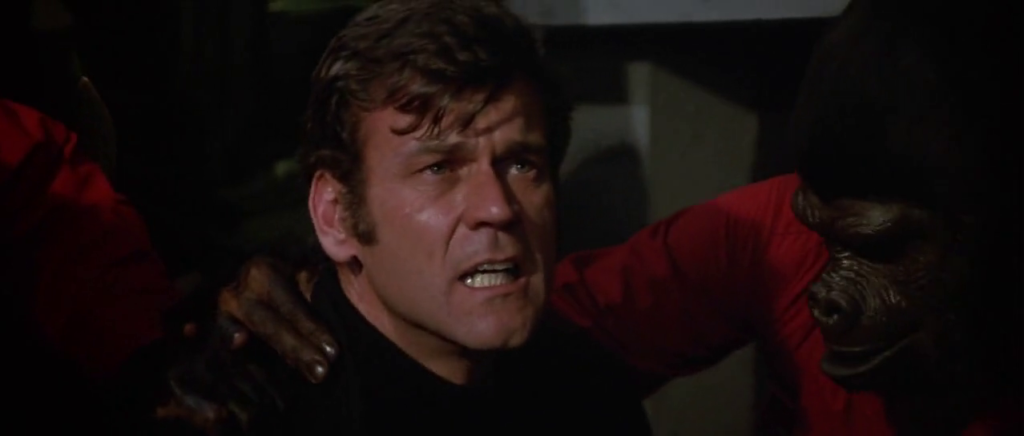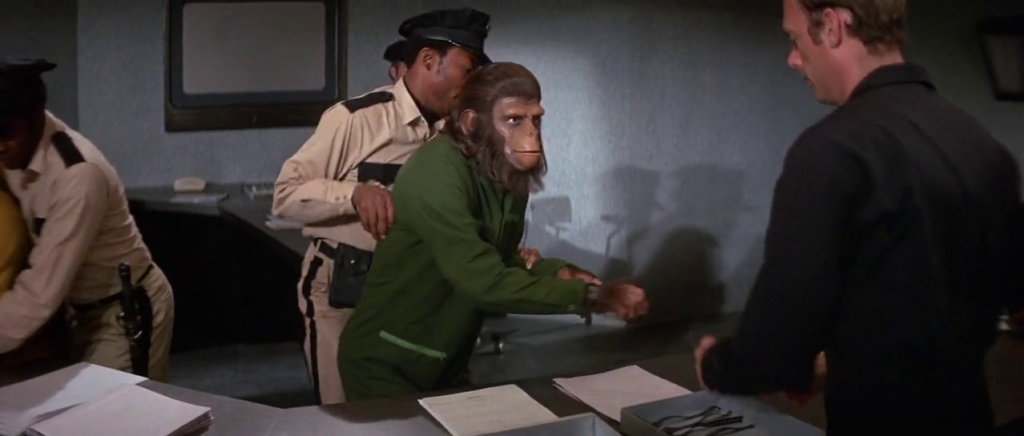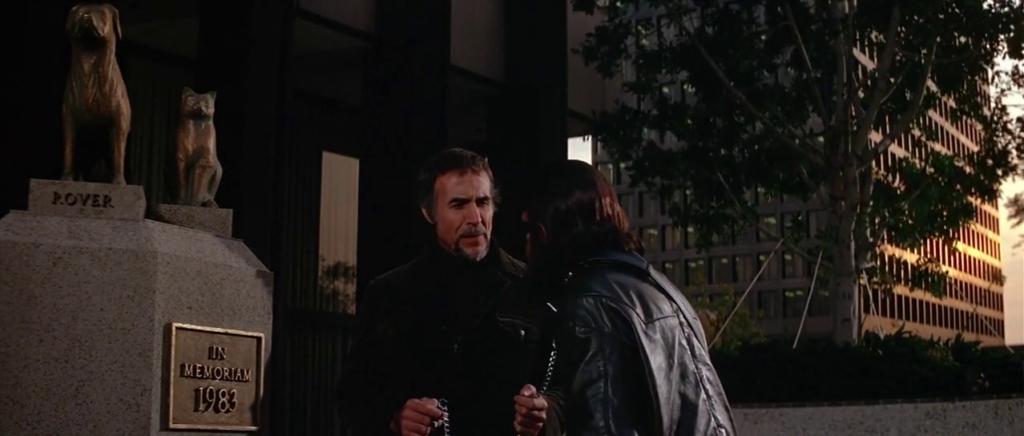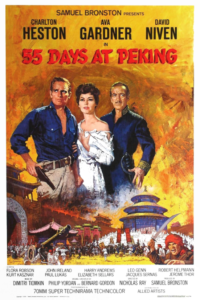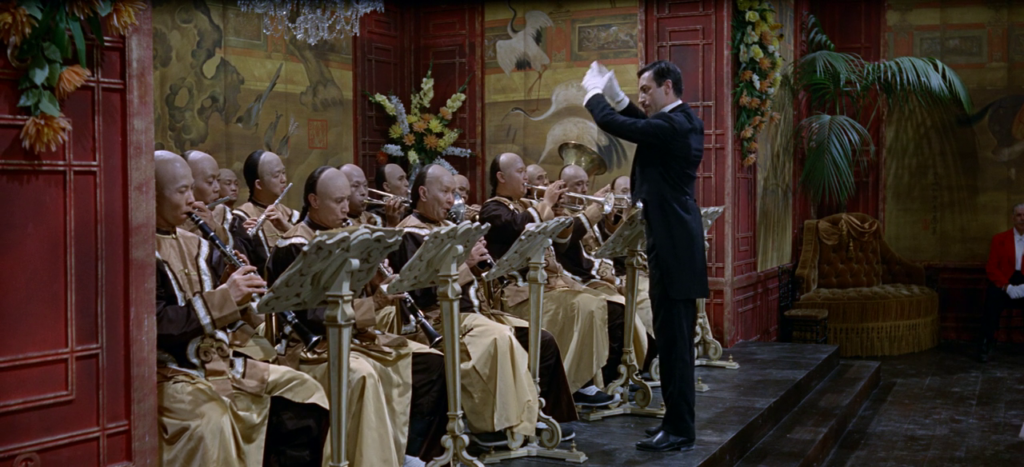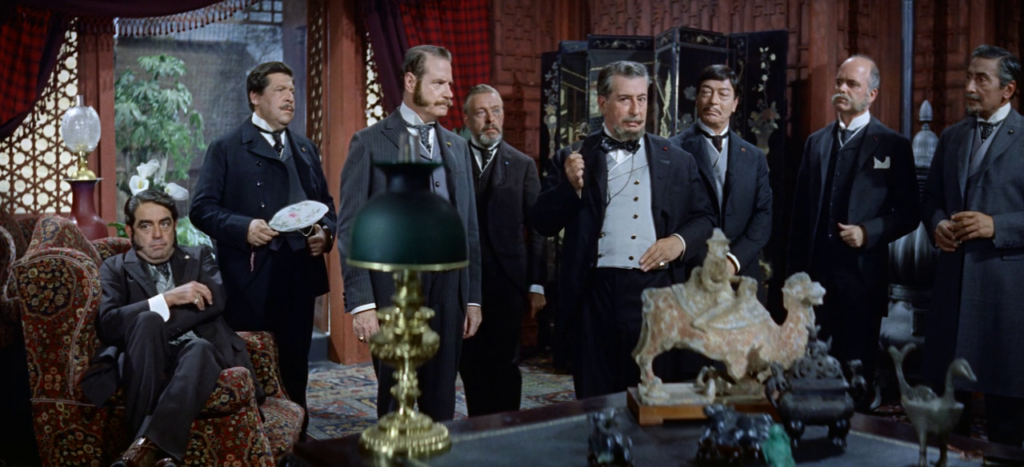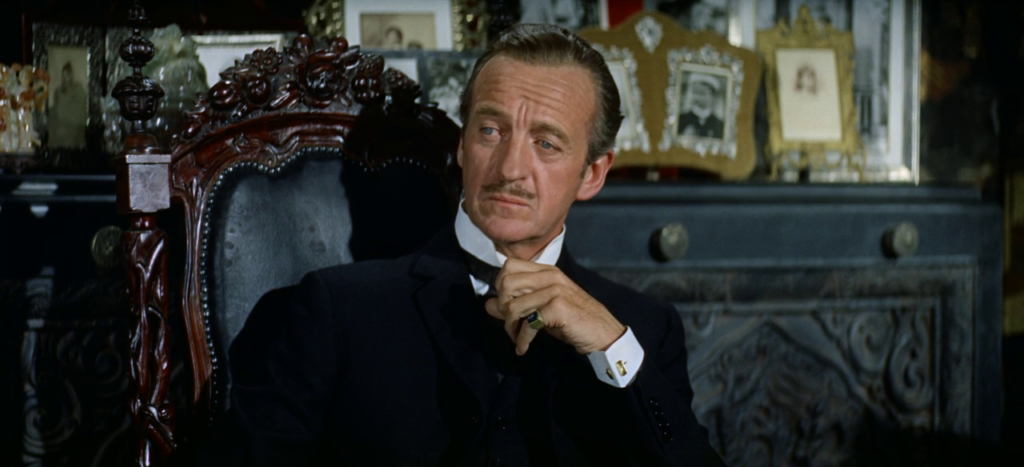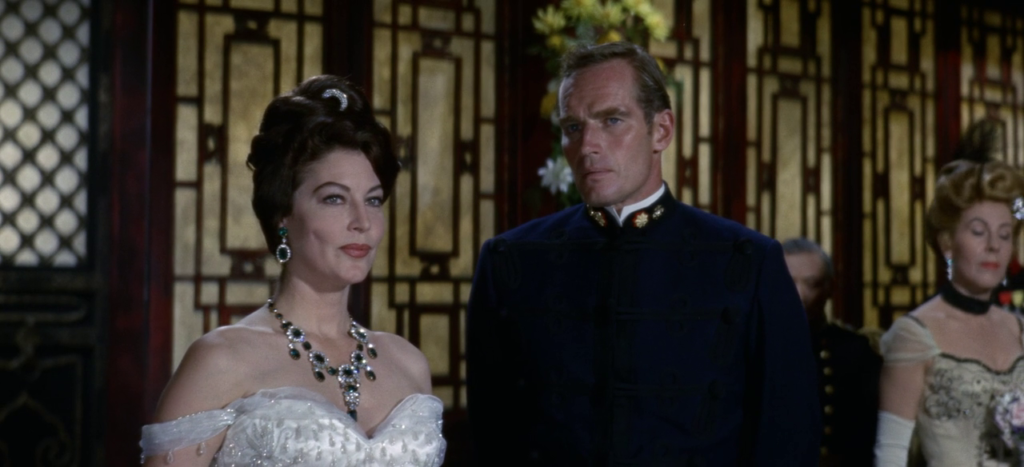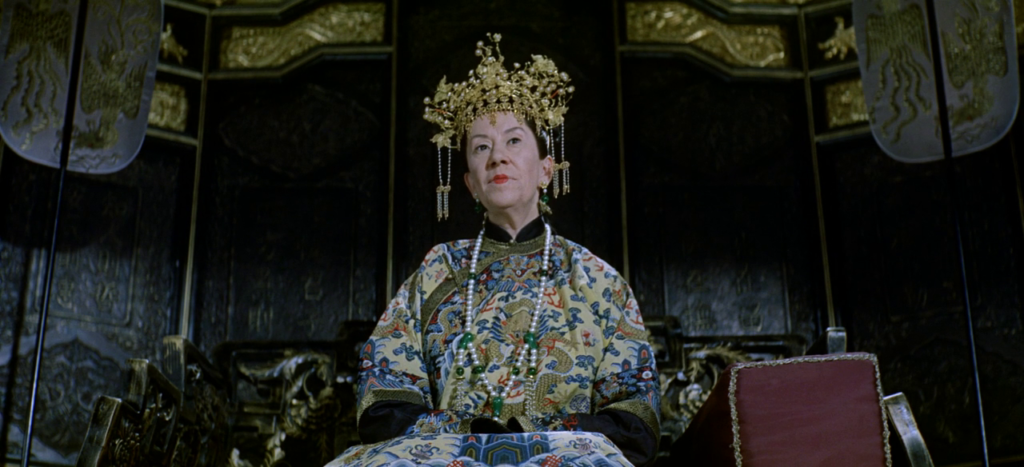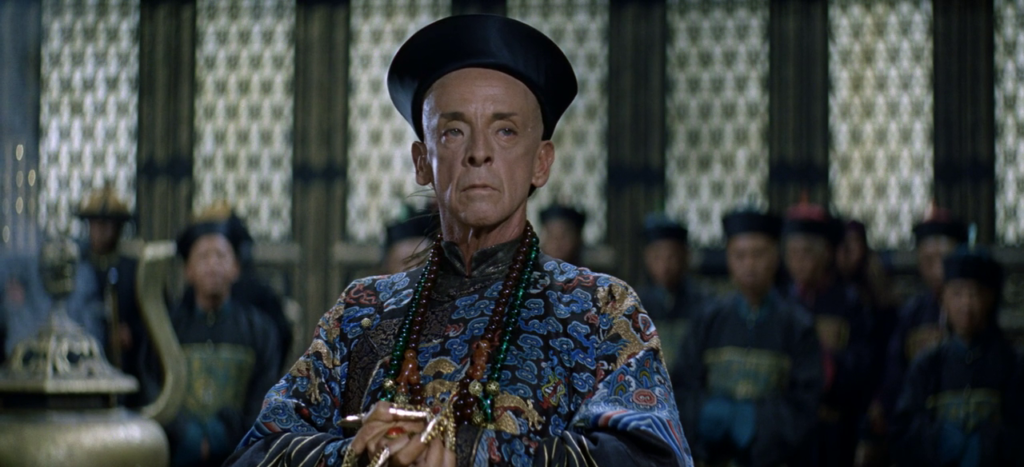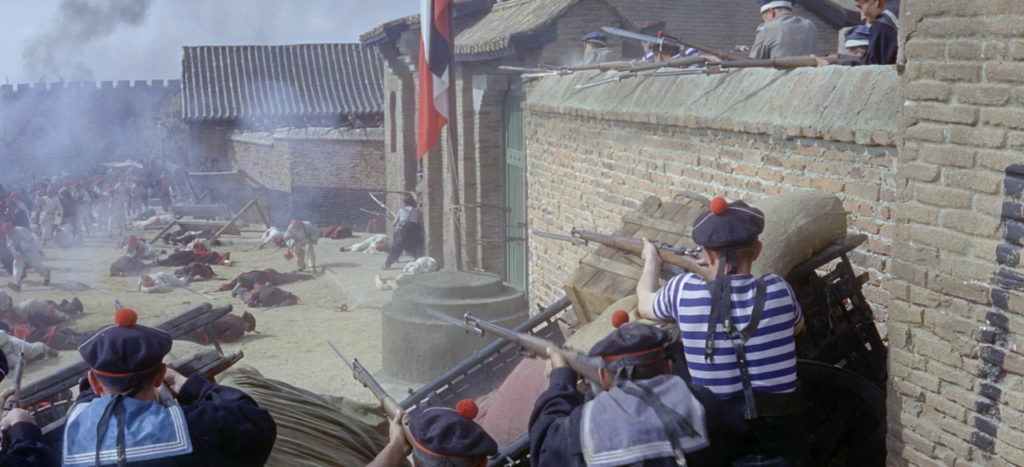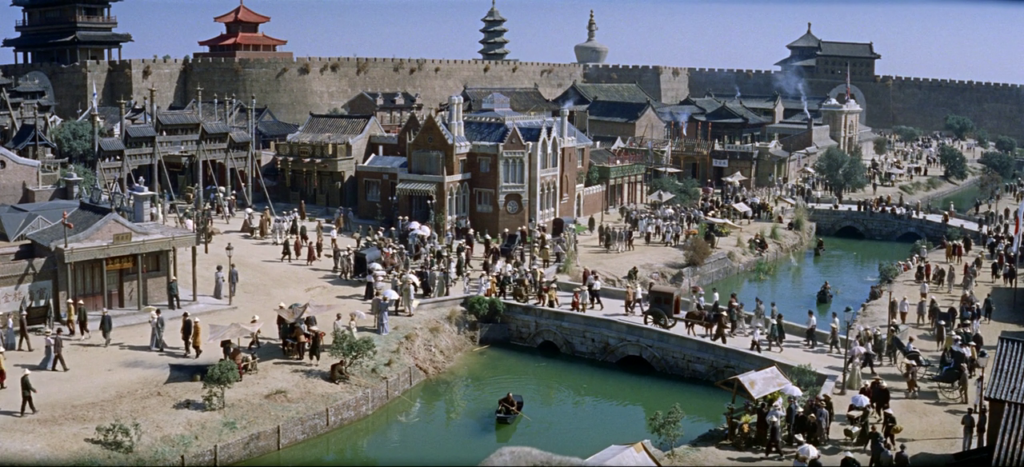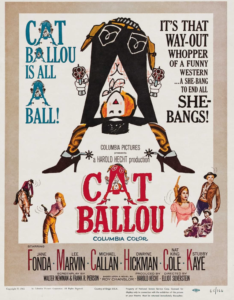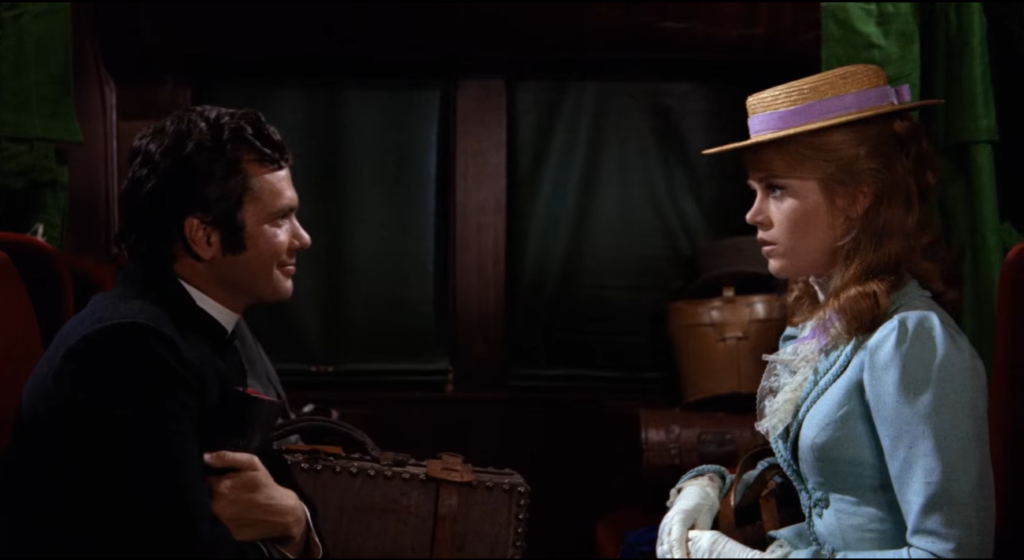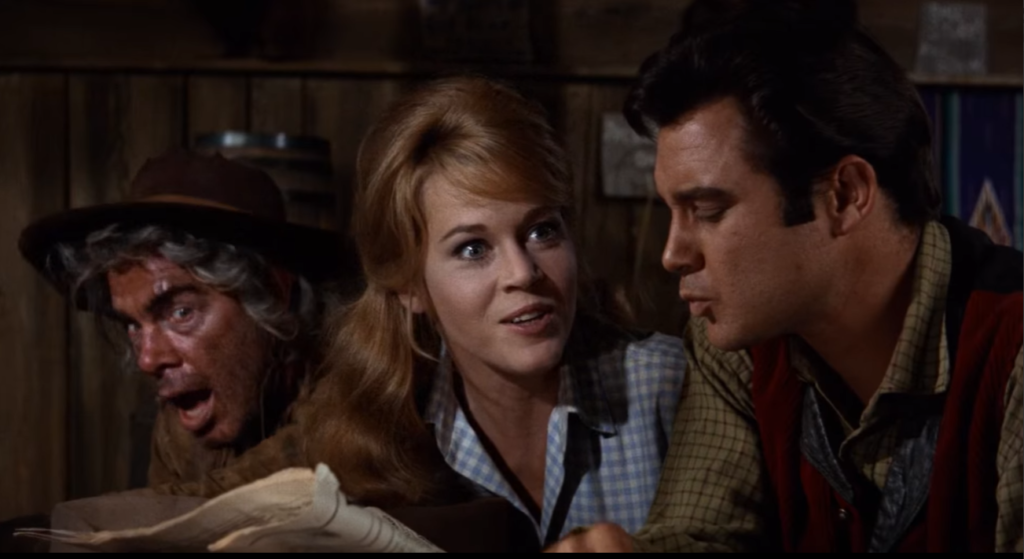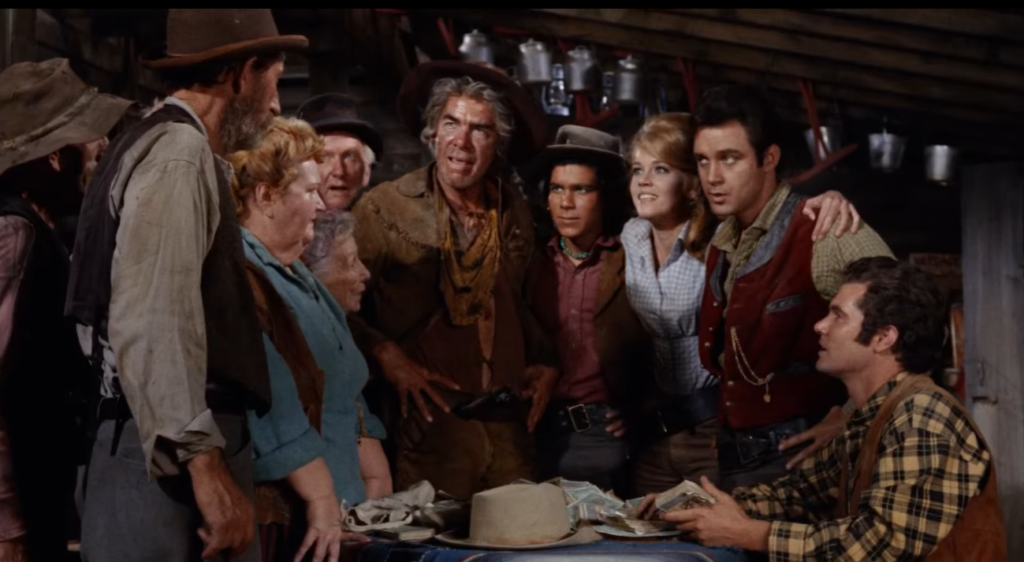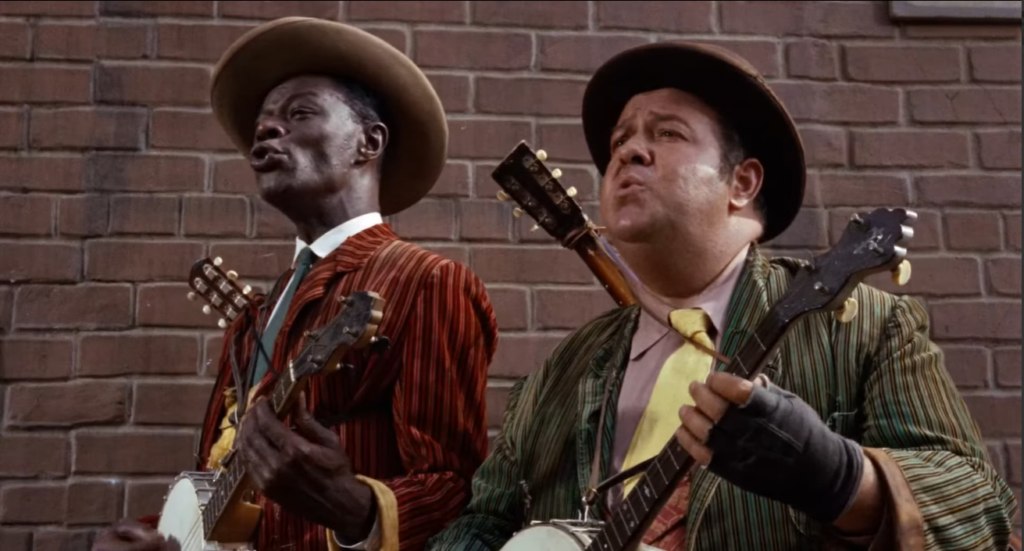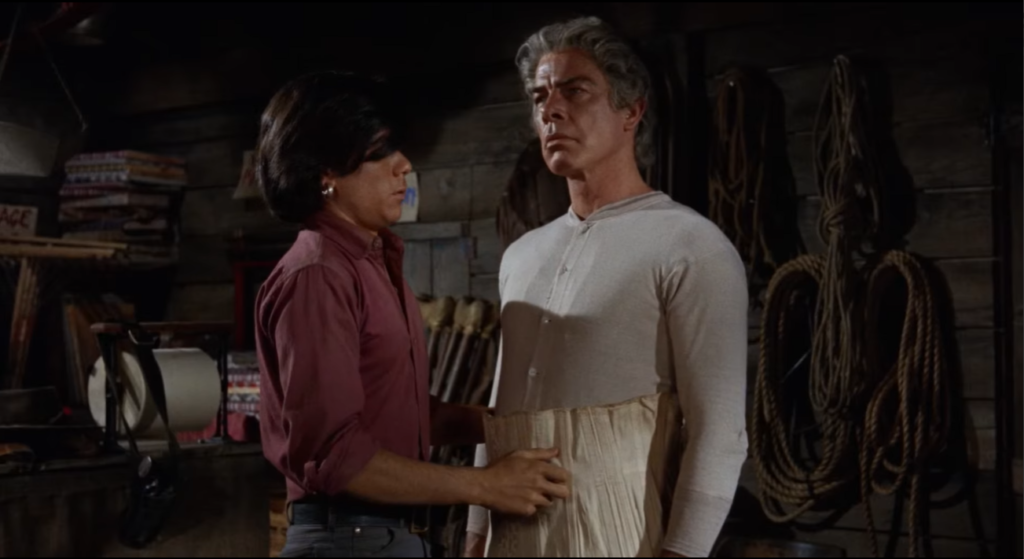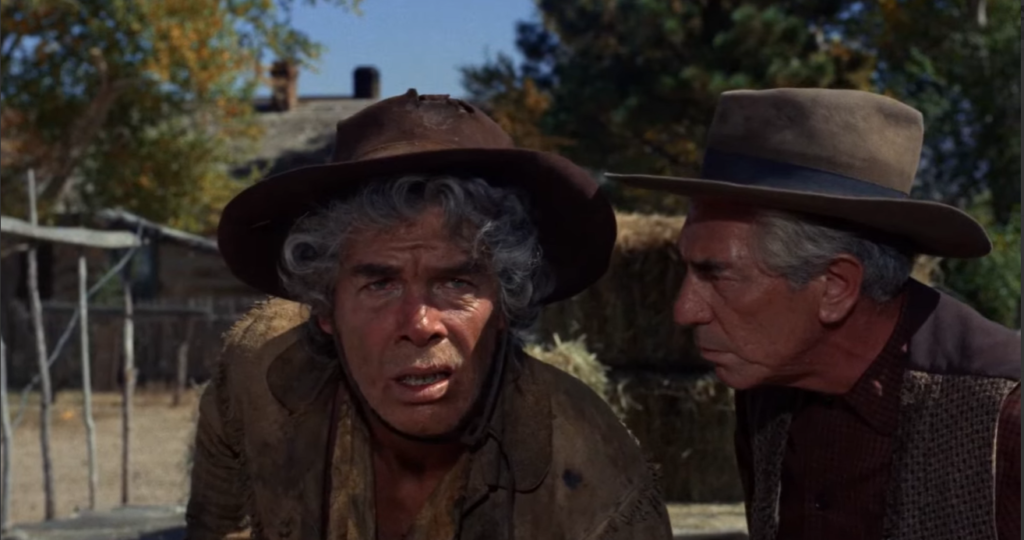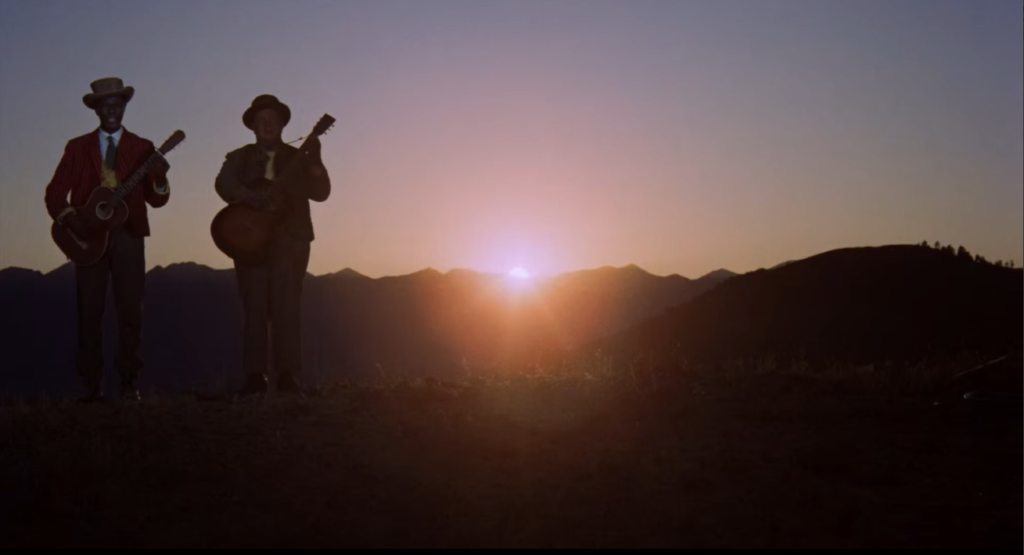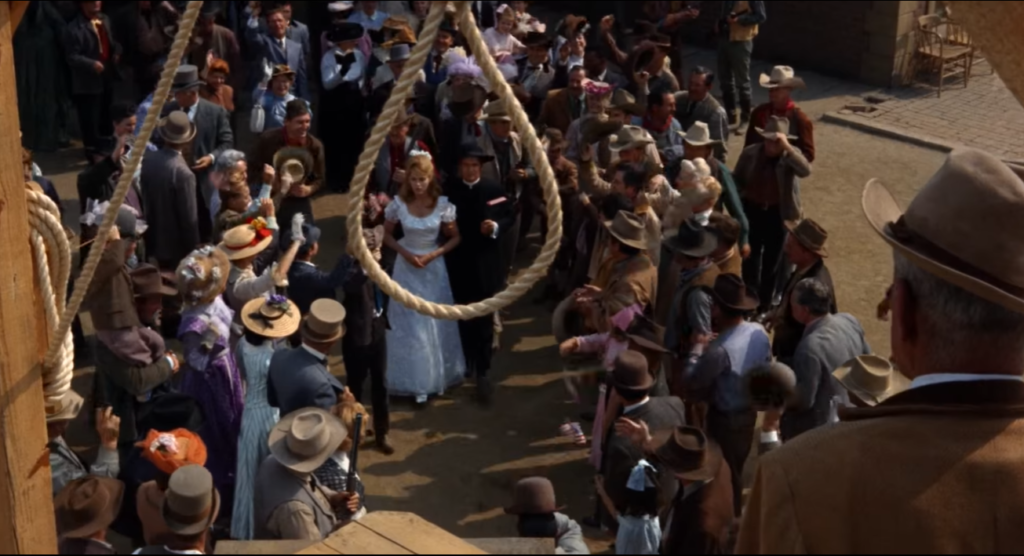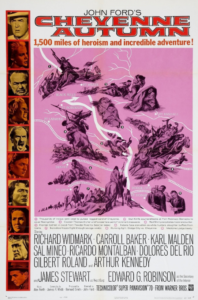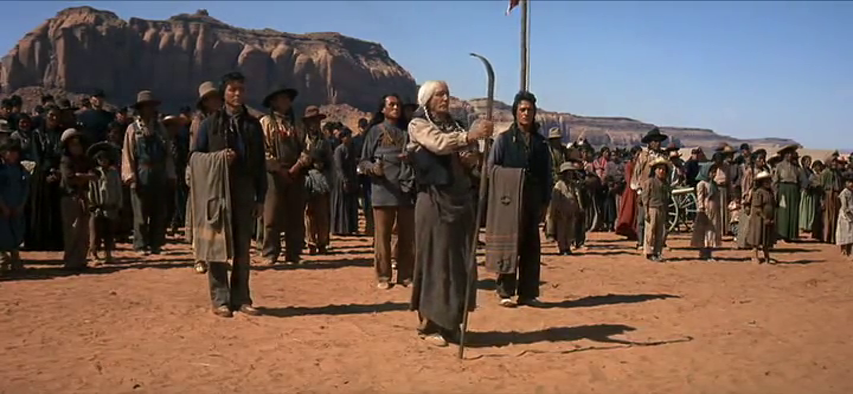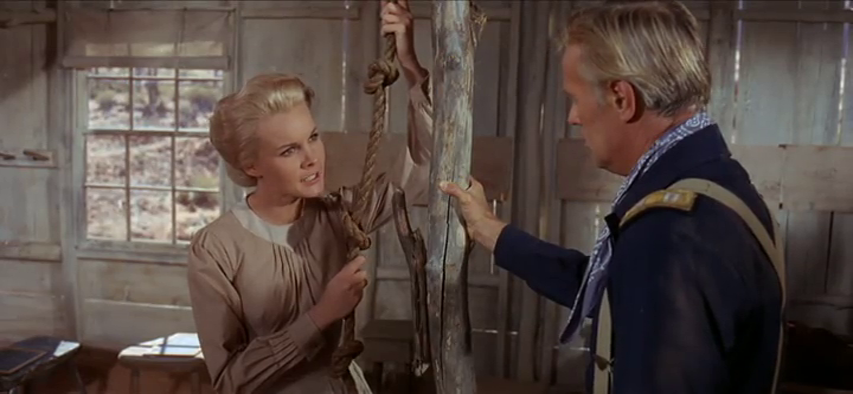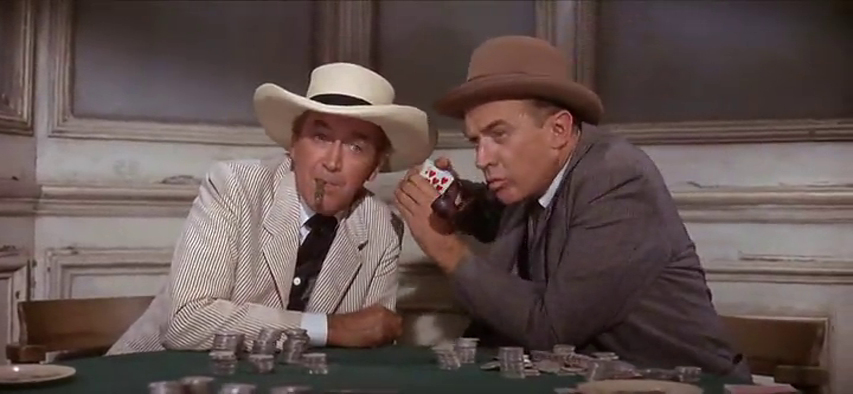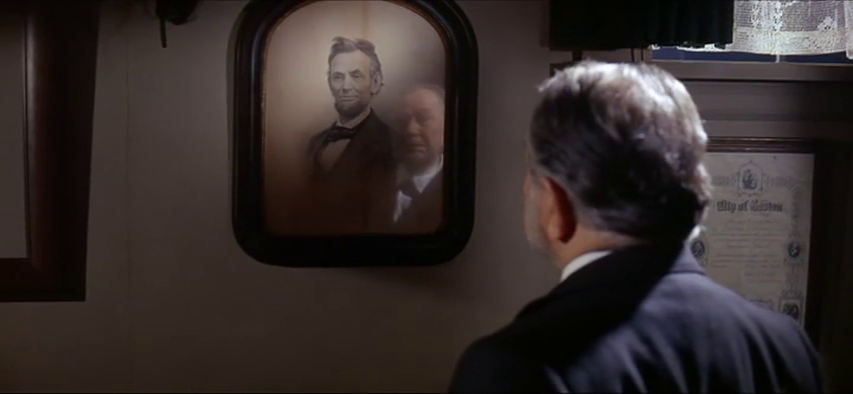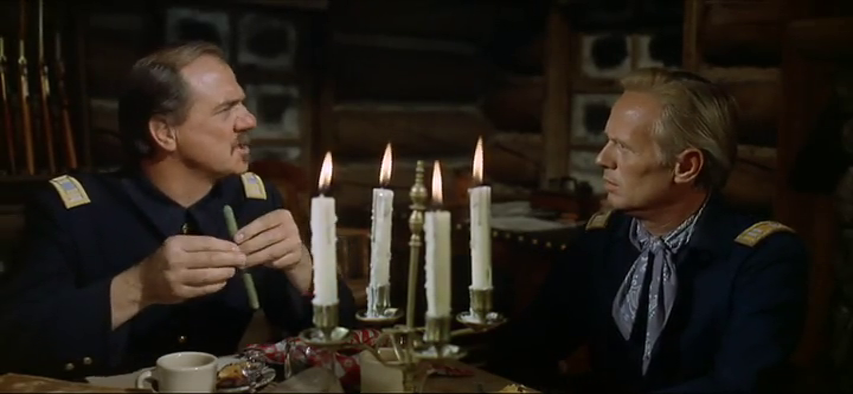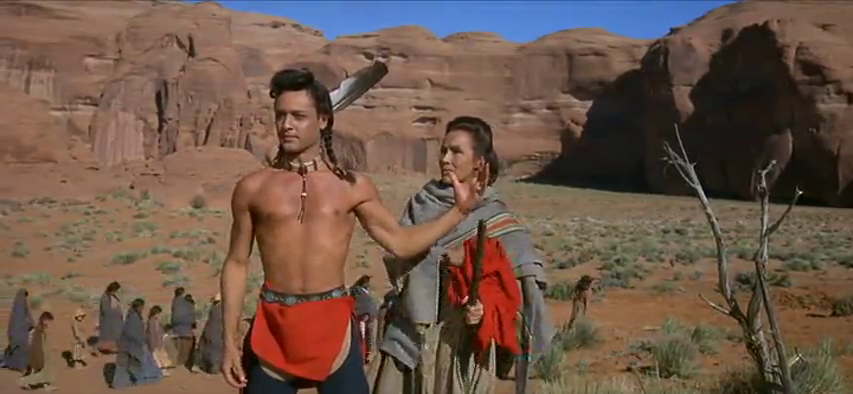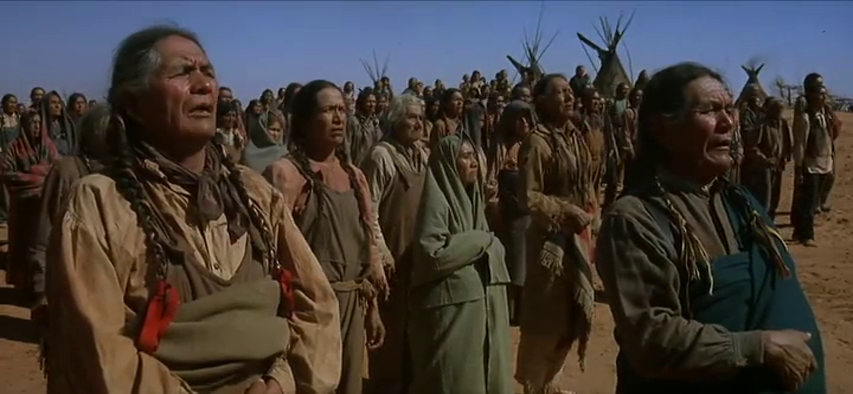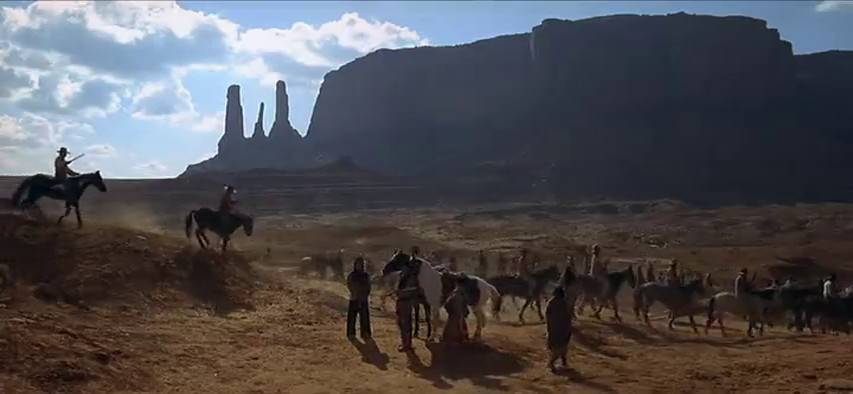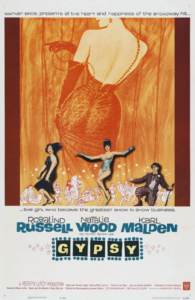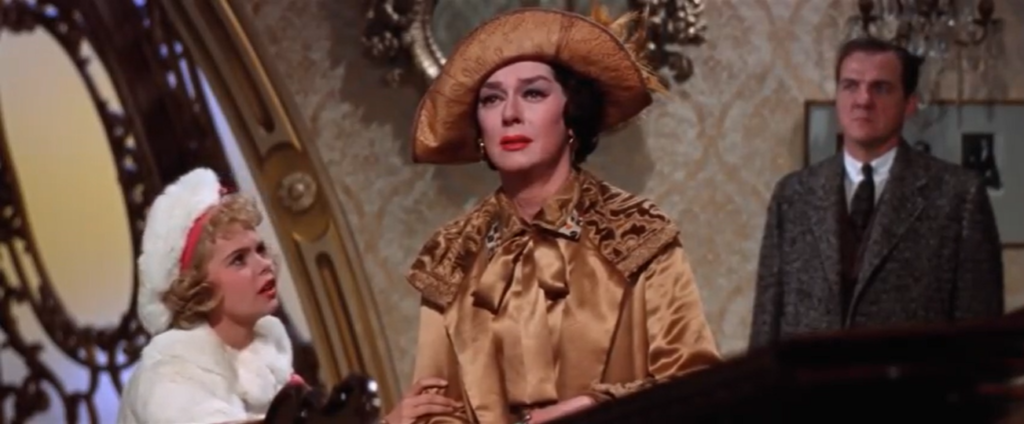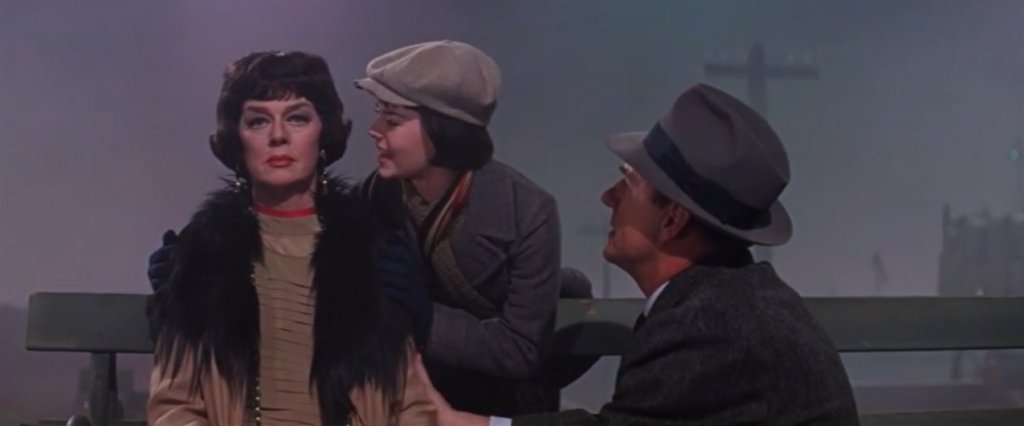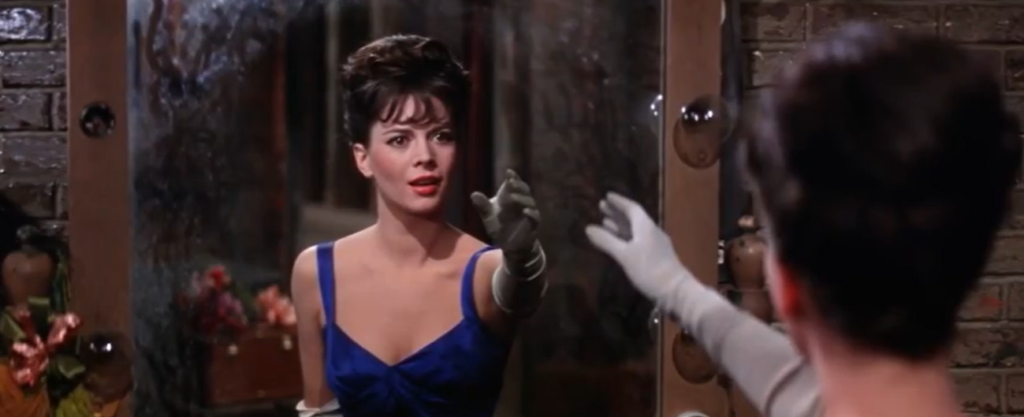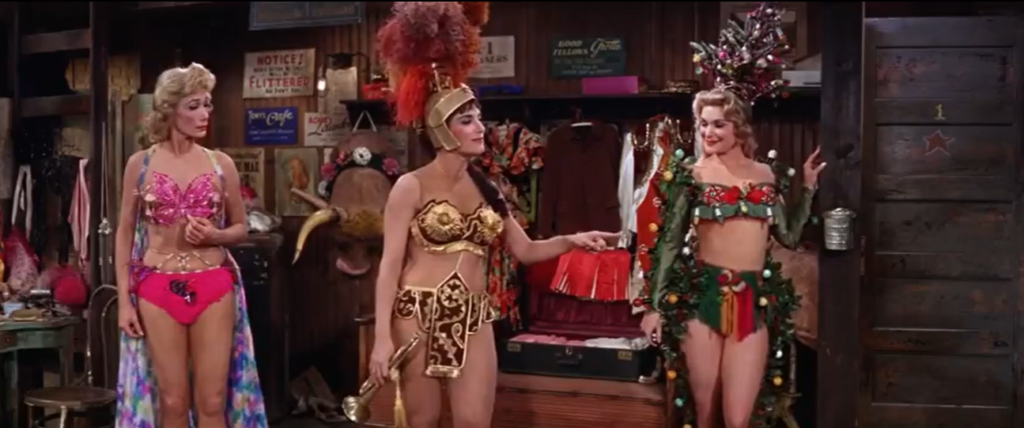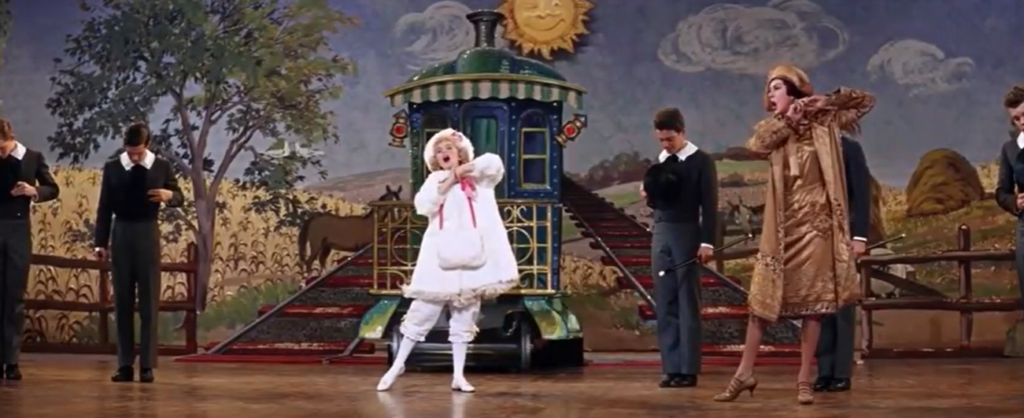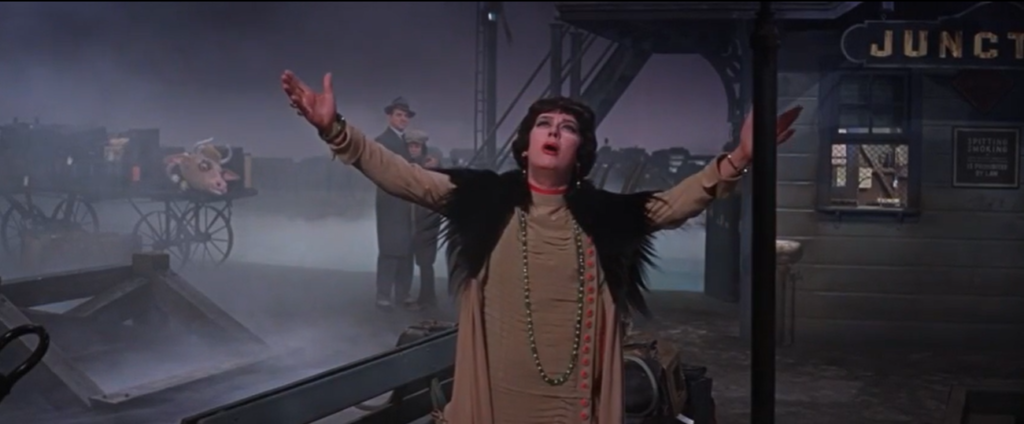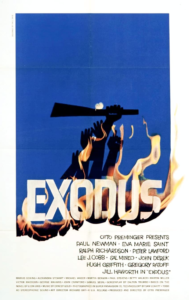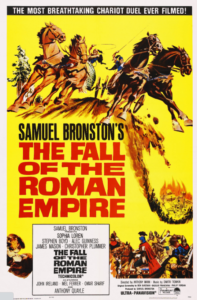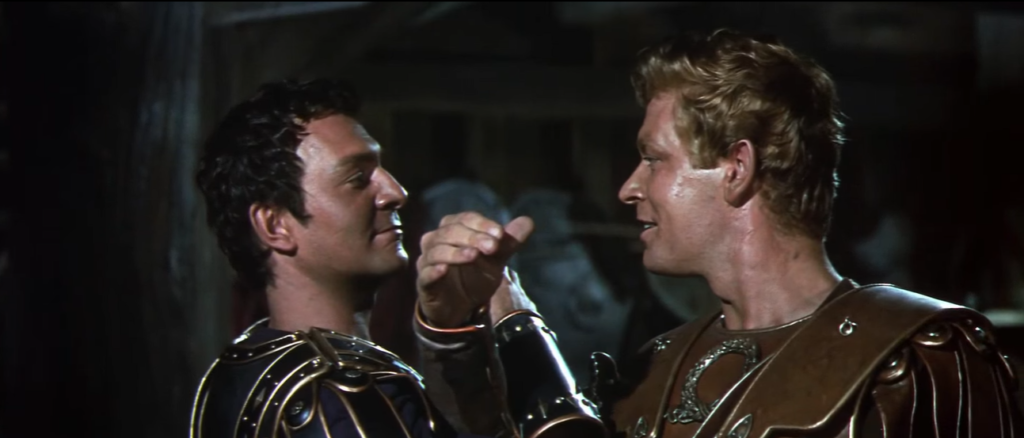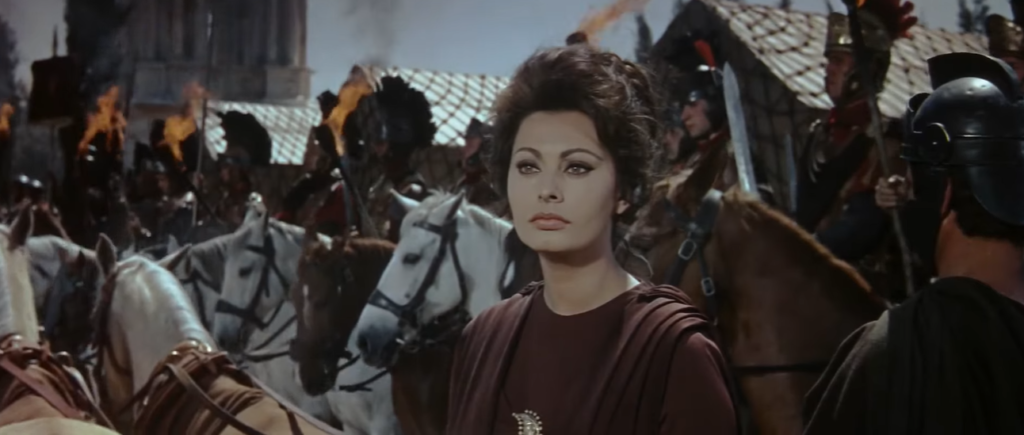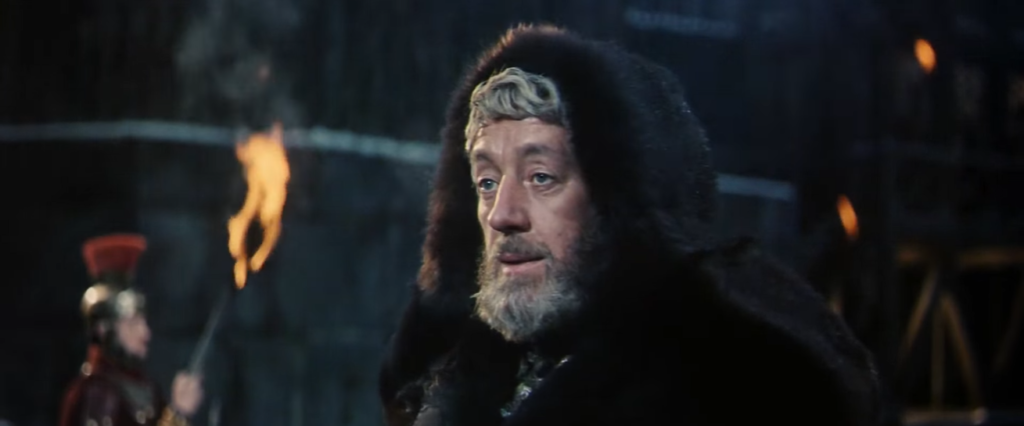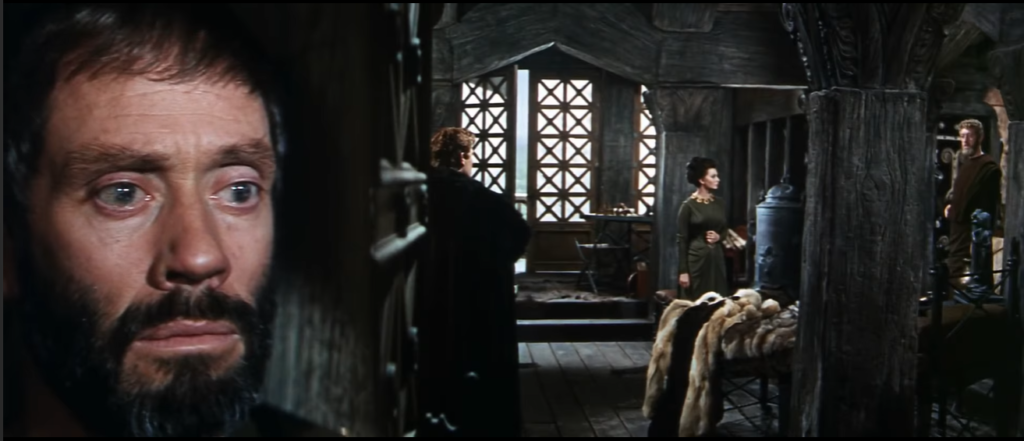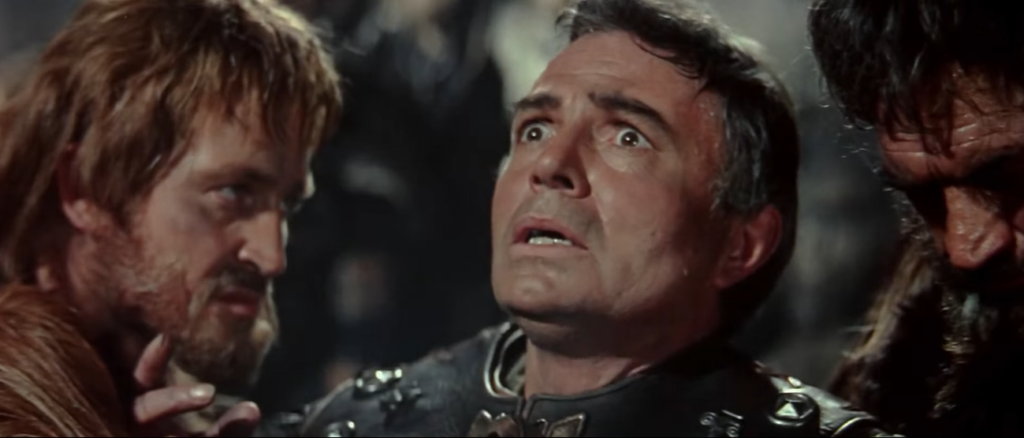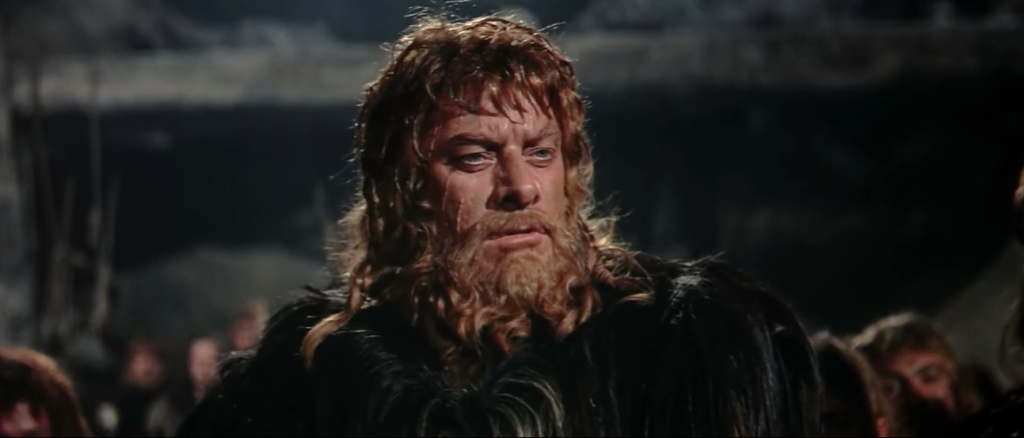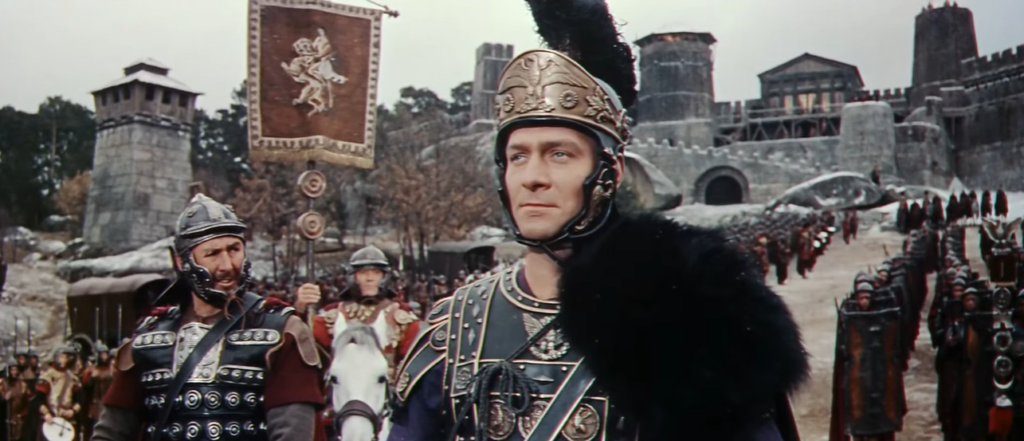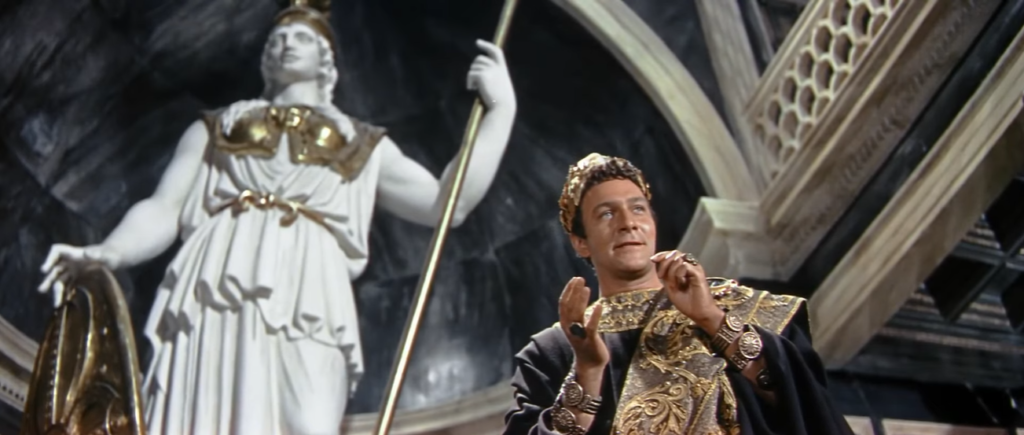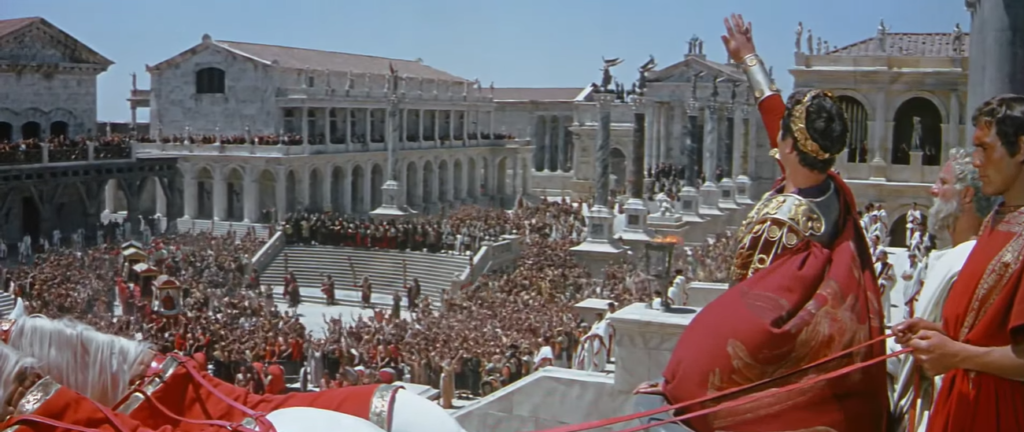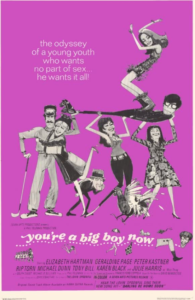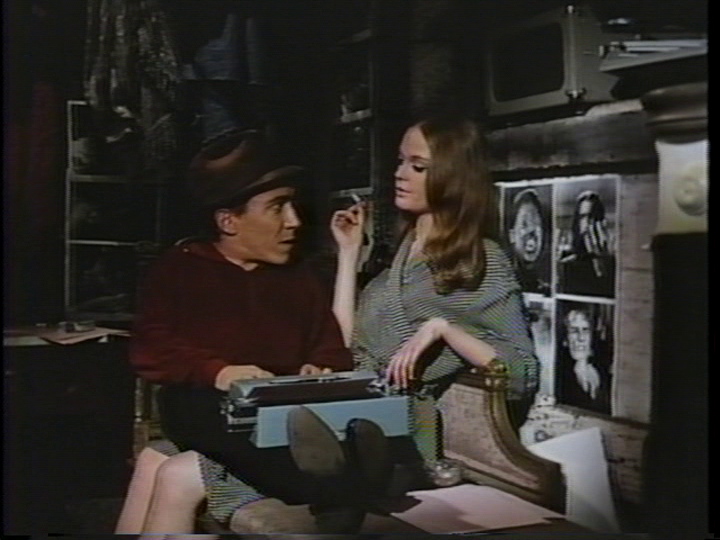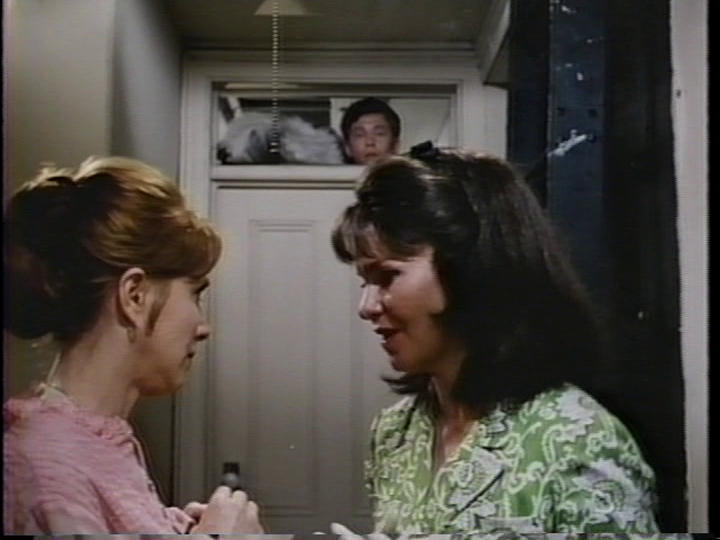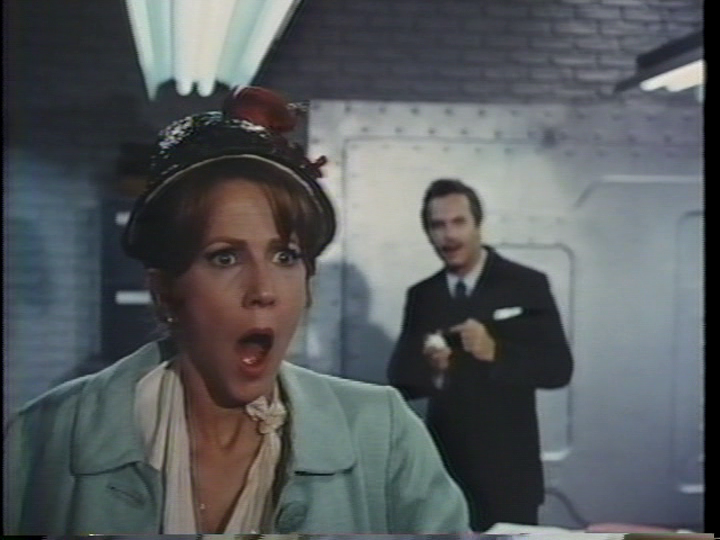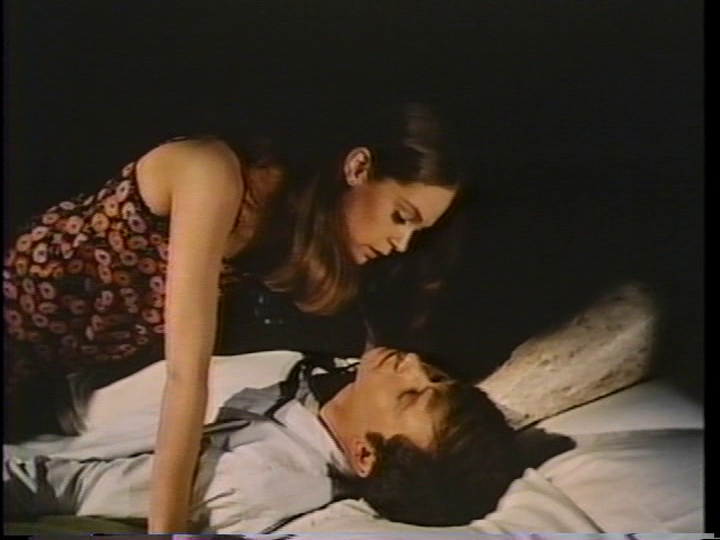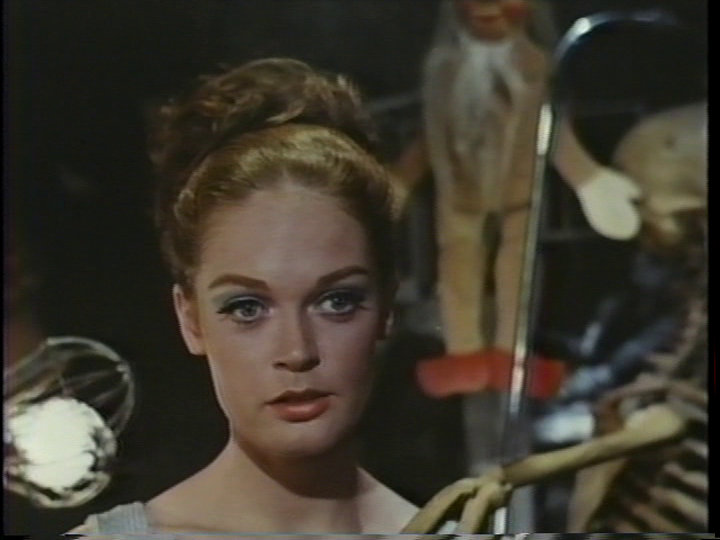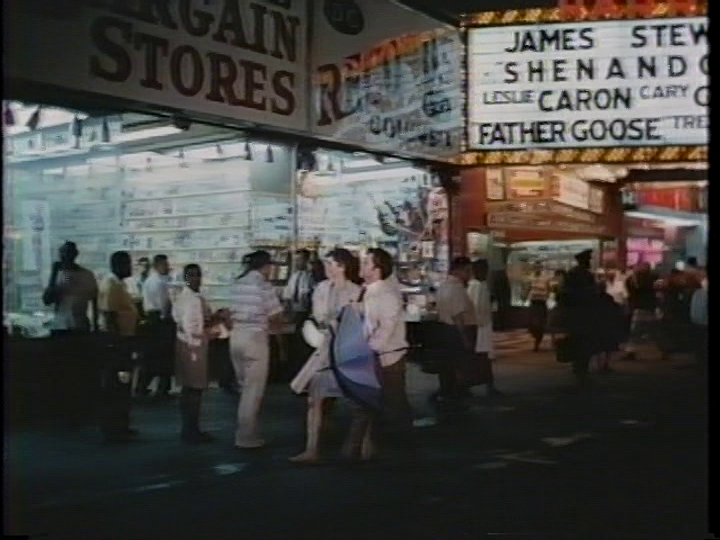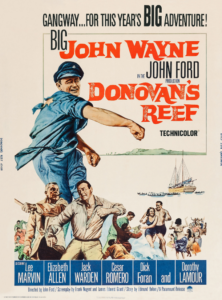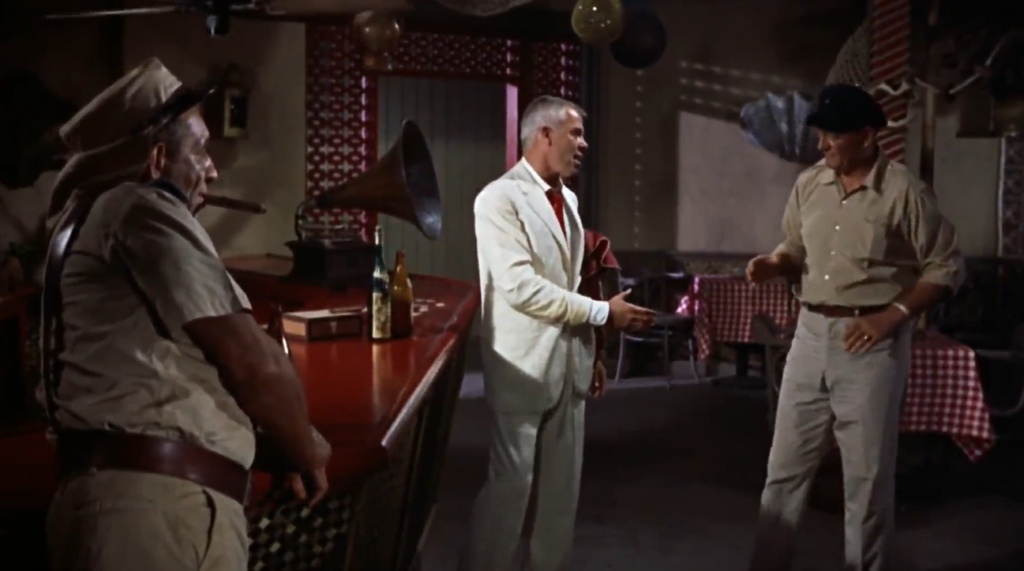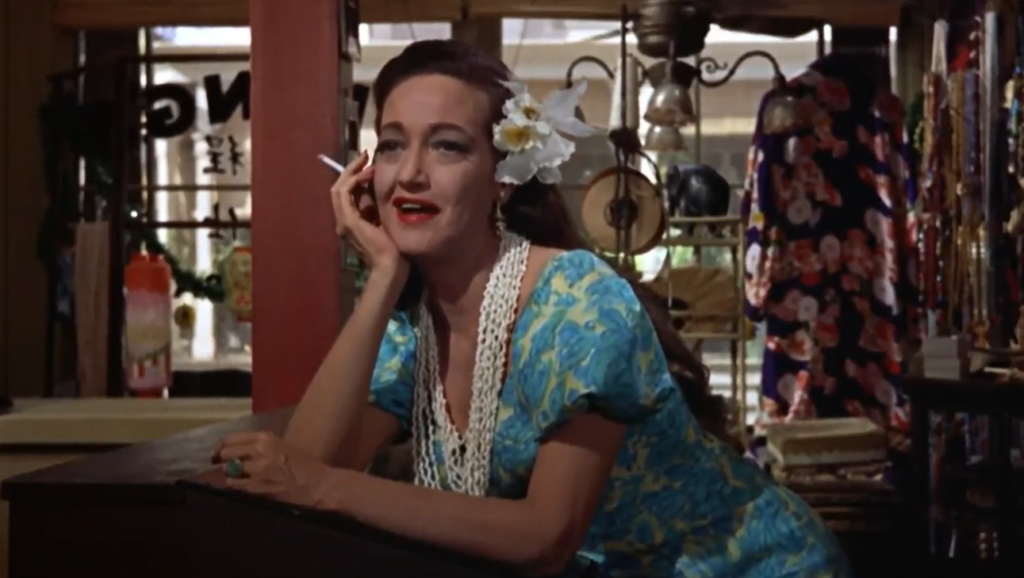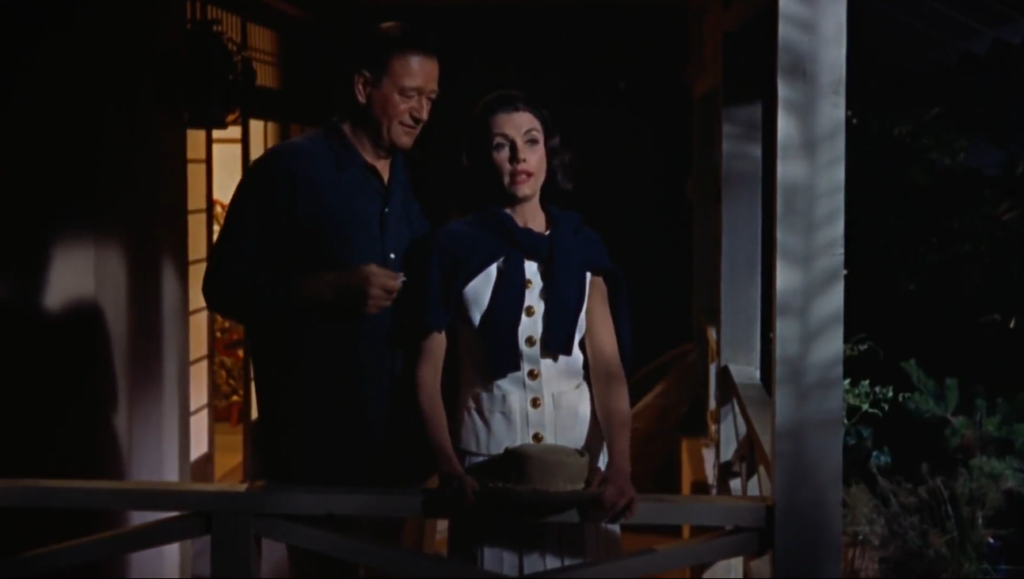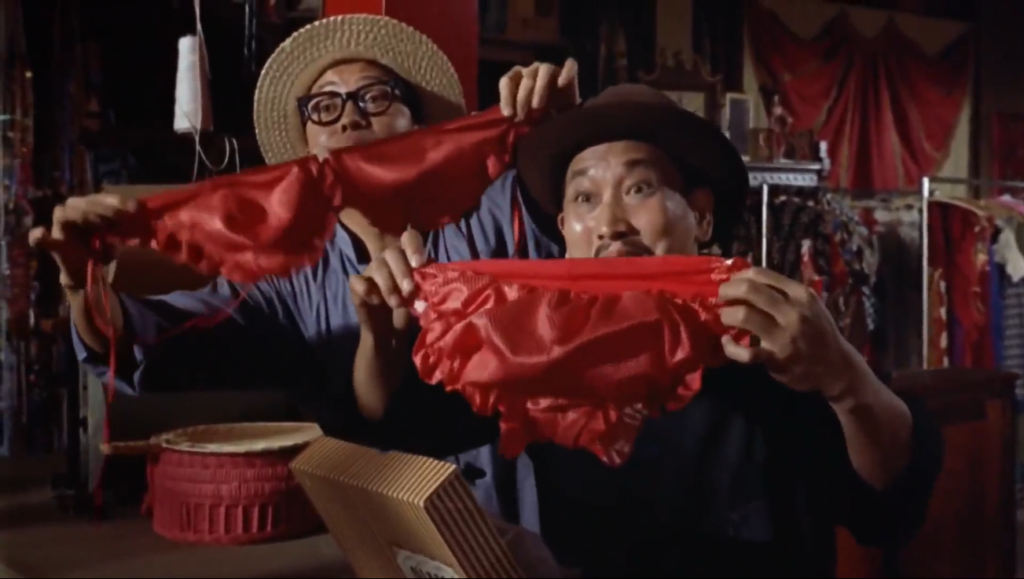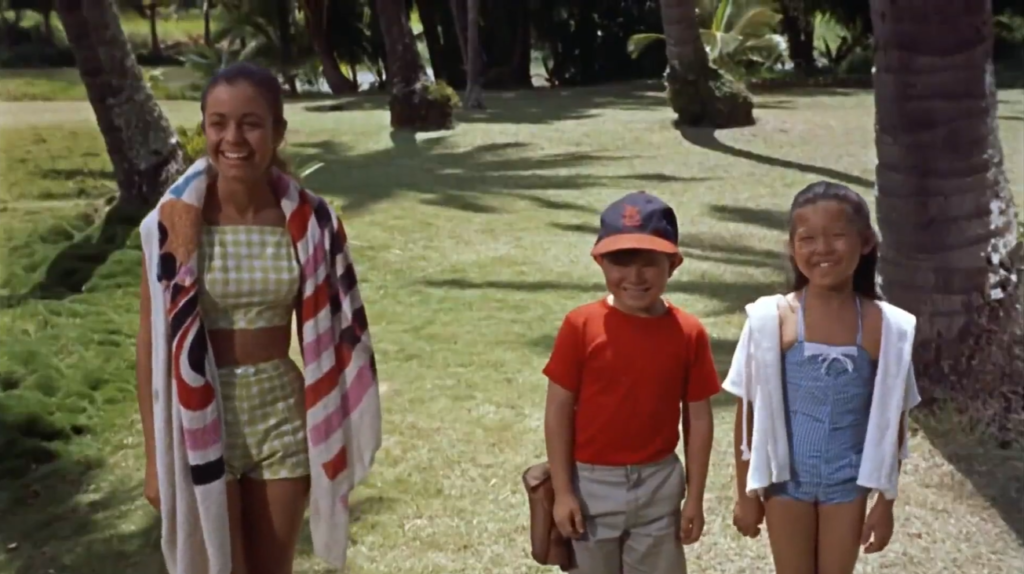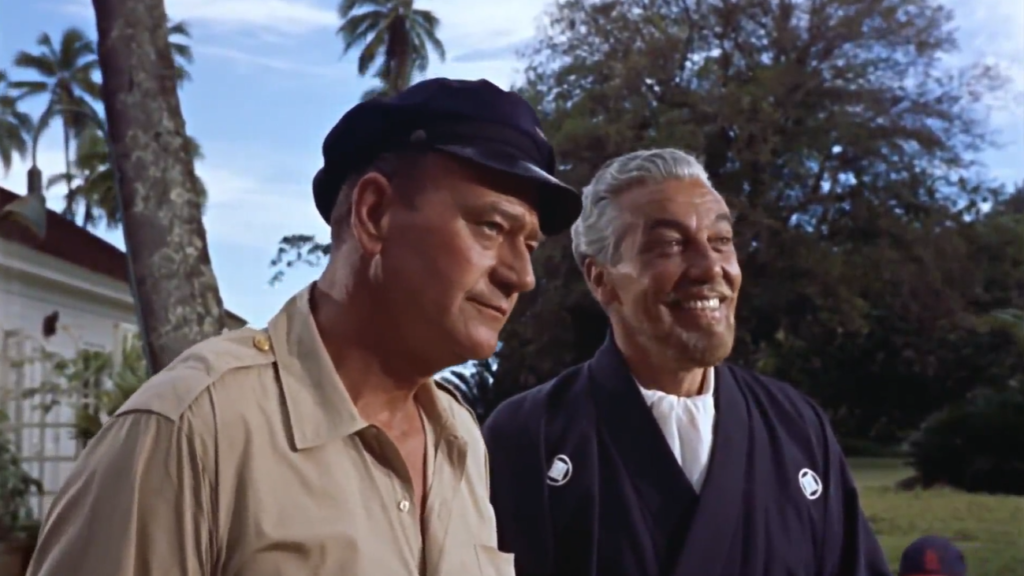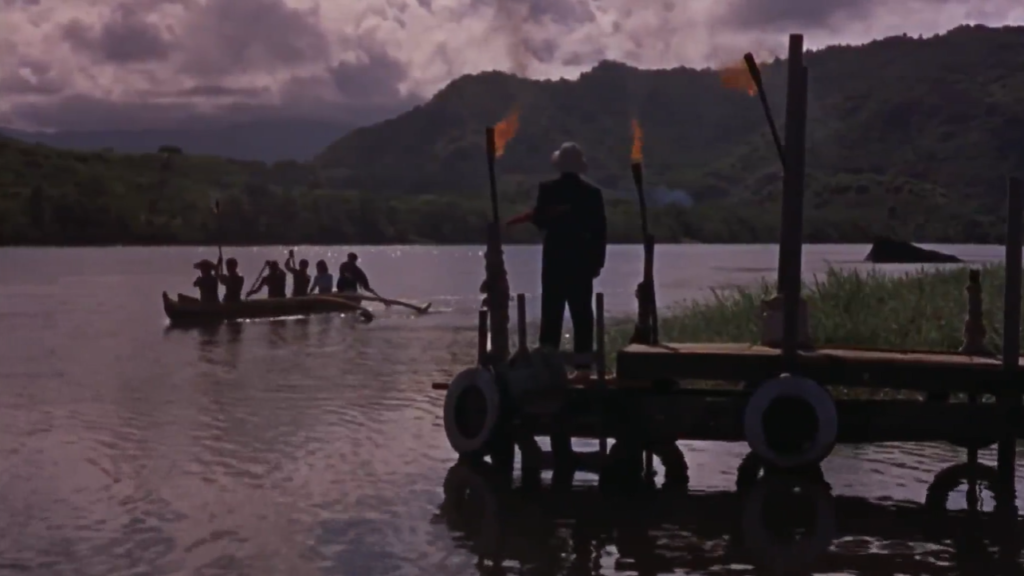|
Genres, Themes, Actors, and Directors:
- Eva Marie Saint Films
- Historical Drama
- Hugh Griffith Films
- Jews
- Lee J. Cobb Films
- Otto Preminger Films
- Paul Newman Films
- Peter Lawford Films
- Ralph Richardson Films
- Refugees
- Resistance Fighters
- Sal Mineo Films
Review:
The synopsis above only begins to hint at the complexity of the storyline in this 3 1/2 hour adaptation of Leon Uris’s best-selling novel of the same name, about the founding of the modern state of Israel. While the burgeoning romance between Newman (as Ari Ben Canaan) and Saint (as Kitty Fremont) takes center stage:
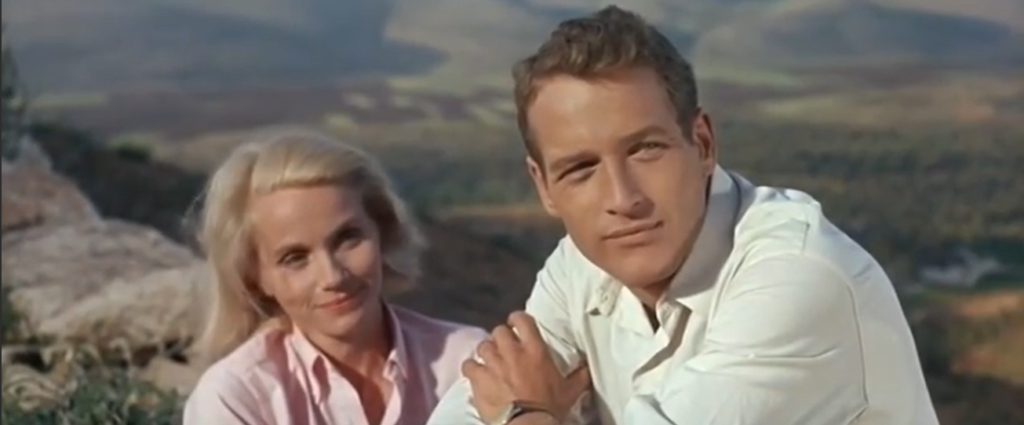
… we also learn quite a bit about socio-political tensions and movements leading up to this point in history. Kitty’s initial impetus to help at the camp — after being asked by a friend (Ralph Richardson) of her deceased husband — stems from her frustration at the overt antisemitism expressed by a casually bigoted major (Peter Lawford).
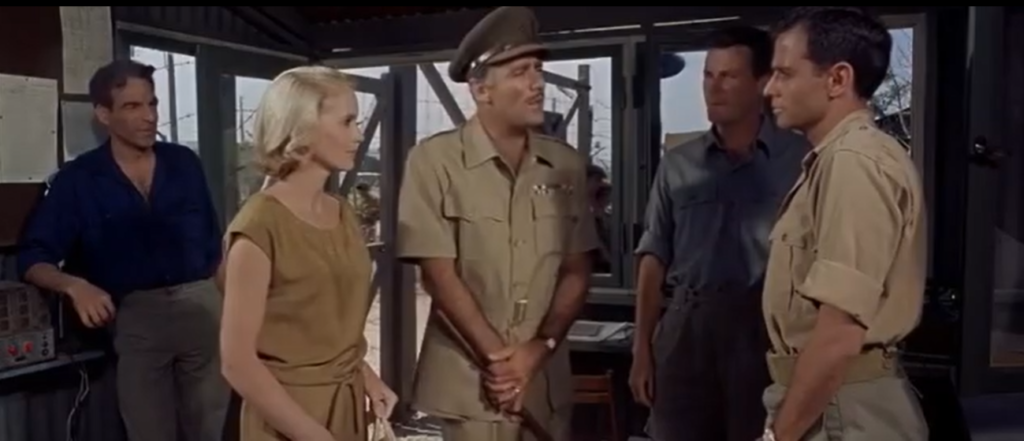
From there, she gradually learns about the enormity of the efforts of refugees wanting to make it to Palestine at any cost — including those like Dov Landau (Sal Mineo), who joins a radical Zionist group called the Irgun to fight and kill for the cause:
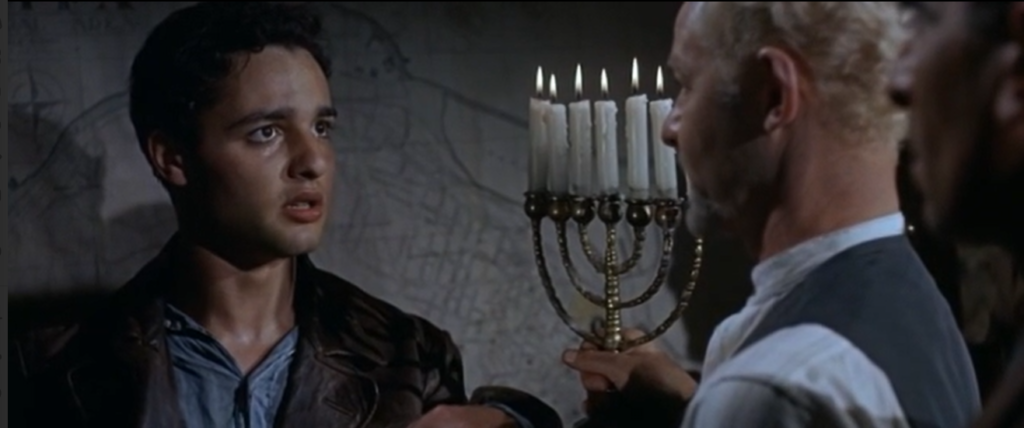
… and teenage Karen (Jill Haworth), who turns down Kitty’s offer to bring her to America rather than to Palestine.
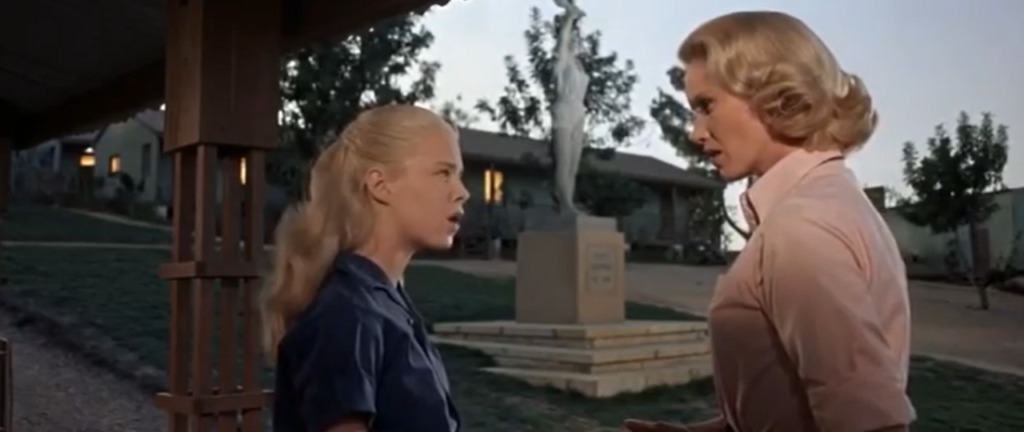
Kitty also meets Newman’s father, Barak Ben Canaan (Lee J. Cobb), who is pushing for a diplomatic solution to statehood for Israel:
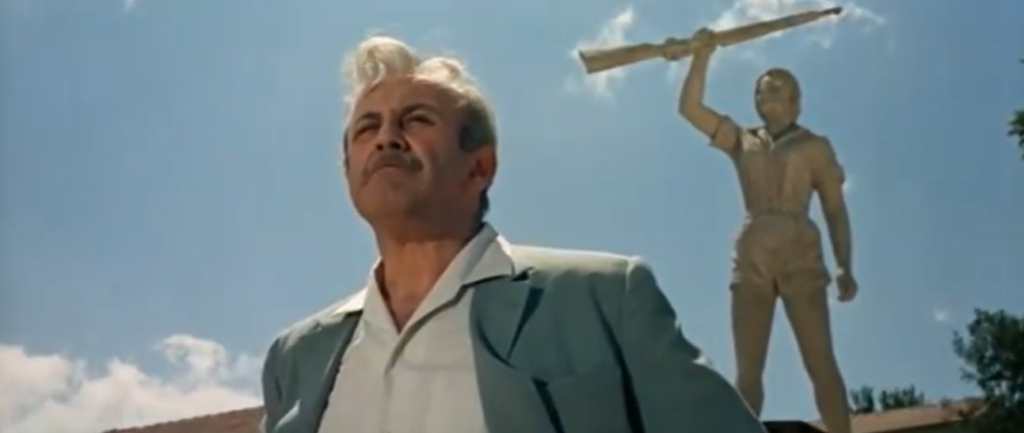
… rather than the violent pathway of the Irgun taken by his brother Akiva (David Opatoshu), Newman’s uncle. We’re also briefly introduced to a token Arab Palestinian (John Derek) whose role is underdeveloped enough to highlight that this tale really is told from the perspective of Jews seeking nationhood in Palestine, not the Arabs being displaced.
To that end, director Otto Preminger — who optioned the book as soon as possible — actually wasn’t happy with what he (and many others) perceived to be Uris’s anti-British and Anti-Arab stance, thus leading to (non-Jewish) blacklisted writer Dalton Trumbo being hired; unfortunately, Trumbo’s script — while admirable as a compression of such a sprawling story — still lasts far too long and is only compelling in spots. Meanwhile, Preminger’s notoriously hands-off direction of his actors resulted in mostly uninspired performances (with Mineo a notable exception). On the plus side are Sam Leavitt’s cinematography and excellent use made of authentic shooting locales and extras.

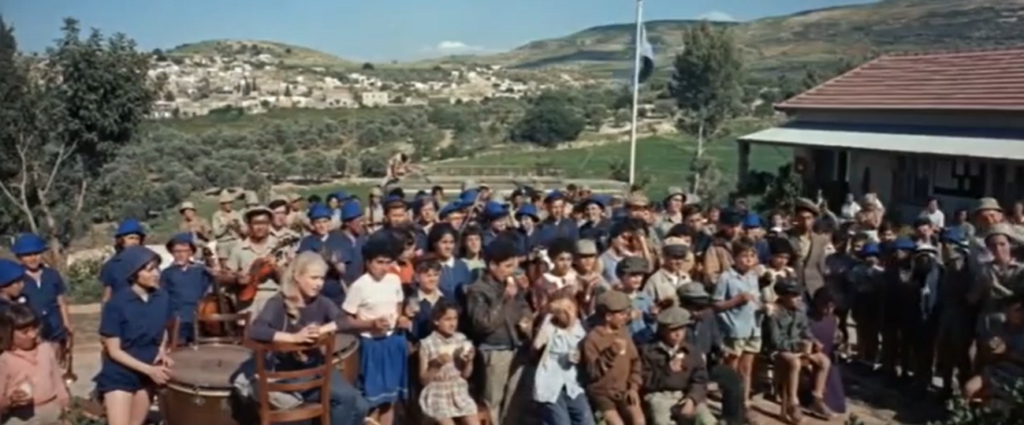
Note: Watching this film made me realize how little I actually knew about the decades-long formation of Israel, leading me to do some additional research and explore how impactful Uris’s book — which became the biggest bestseller since Gone With the Wind (1936) — was, serving as a cultural touchstone and inspiration for thousands.
Notable Performances, Qualities, and Moments:
- Sal Mineo as Dov Landau
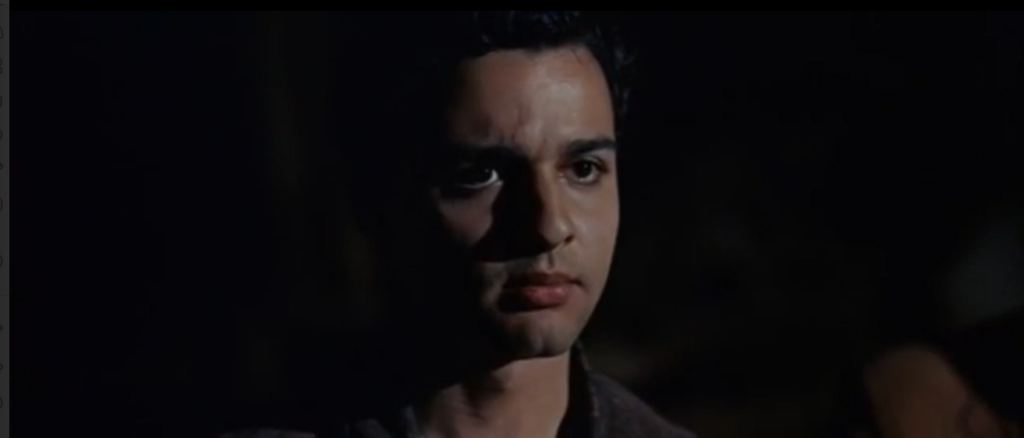
- Sam Leavitt’s cinematography
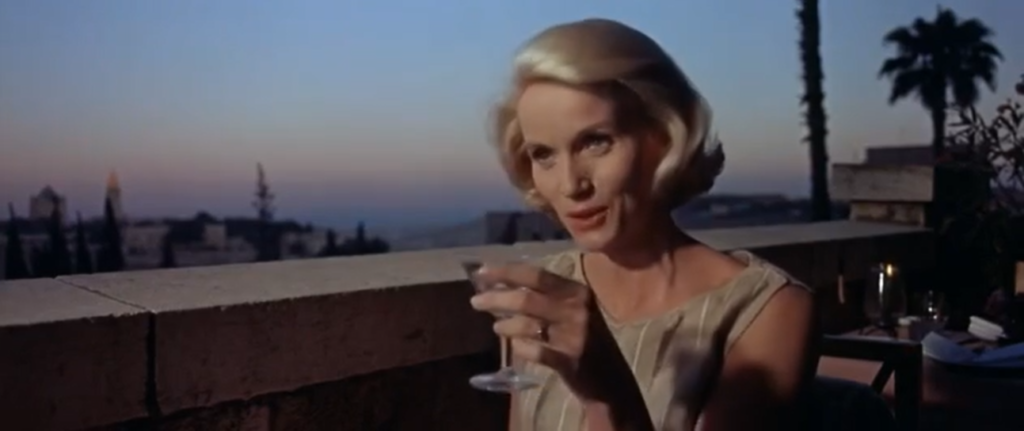
Must See?
No, though it’s worth a one time look.
Links:
|

